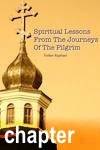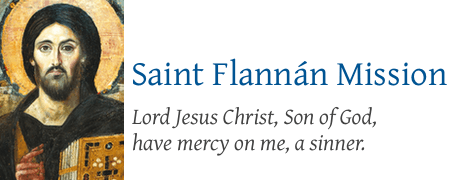 When we are confronted with personal choices, do we sometimes try to force our own will on impossible situations? Why not surrender to Divine Will instead?
When we are confronted with personal choices, do we sometimes try to force our own will on impossible situations? Why not surrender to Divine Will instead?
Dear beloved,
Let us now read from the second book, “The Pilgrim continues his way.”
A year has passed since we last heard of the pilgrim. He is reunited with his spiritual father. The pilgrim reported to the elder, that despite his own wish to visit Jerusalem, it was not to be.
The pilgrim was to travel with the deaf old man to Odessa via Irkutsk, through an introduction letter from a merchant to his son. However, to the pilgrim’s dismay, when he reached Odessa, the merchant’s son has died of a sudden illness. The household of the merchant’s family was exceedingly kind to allow the pilgrim to stay for two months, despite them being in mourning. Then, the merchant in Irkutsk wrote to his son’s family in Odessa, to all go back to Irkutsk without delay. Something important or terrible must have happened to the kind merchant in Irkutsk, and so, the pilgrim, had no reason to impose on the good people in Odessa, and moved on to continue his travels in Russia.
Such is the Divine Will in many of life’s events. When we insist on something in our own strength and will, we often face tremendous obstacles. These obstacles might be God’s Divine signals to us not to proceed foolishly with some bad decisions in our lives. I have humbly found, through my own challenges in life, that as soon as I surrender to the Will of God, in situations of danger, difficulty, or temptation, the path becomes easier to understand, and sometimes, easier to bear as well. After all, God has known us before we are born. He would know our lives throughout our journeys, even before we make many foolish decisions. After all, when we profess the Lord’s Prayer, do we not take this instrumental and universal Christian prayer seriously (St Matthew 6:10)?
The pilgrim saw a peasant of good standing, wanting to commit suicide, because he felt great pain and suffering and wanted to end it all. He was rescued and was recuperating in hospital. The pilgrim told the peasant and his family, that one should always go to God in prayer first, and to confide their woes to family members and trustworthy friends, so that one would not give in to the evil one’s snares of suicide (1 Corinthians 12:12-26).
In life, we often need to do two things as Christ commanded: (1) Love God, and (2) love others as ourselves. Likewise, in many activities in life for us who are deep in the world, we need two things also, (a) Prayer, and (b) People.
The pilgrim mentioned that God treasures every seemingly small deed done for Him, whether it is an action, or even an intention, that serves to glorify Him. The Holy Spirit warms us to such good intentions or good actions for God, and grieves when we turn away.
“No good deed, no matter how insignificant it may be, will be scorned by the Righteous Judge” – Saint John Chrysostom, father among the saints.
For those of us who are blessed with much, God demands much from us. For those of us who are blessed with less, do not lament, for God does not simply weigh you on the weight of gold and silver, but your heart (2 Corinthians 5:17).
The pilgrim told us another story, of a monk who lived a good life, and gave in to the temptation of wanting to eat dried fish. The monk went to the city to buy dried fish, but discovered he forgot to bring his chotki. Just as he was about to turn back, he found his chotki in his pocket. He made the Sign of the Cross and continued to walk to the marketplace. When the monk reached there, a horse near a crate load of goods went berserk and knocked him down, and tripped the heavy crate over. Blessedly, the crate crashed besides the monk and did not kill him. The monk still purchased the dried fish and went back to his monastery. Later in the night, the monk dreamed of the patron of the monastery, who chided him on his weakness against his lusts and his laziness in striving for understanding and strength. The patron of the monastery told the monk in his dream, that it was due to the guardian angel who inspired the monk to remember his chotki as a mark of a monk, and to remember to pray and make the Sign of the Cross, which lent God’s mercy to prevent certain death. When the monk woke up, he was not on the bed, but prostrated near the door, just as he dreamed.
God gives us many signs in our journey, and the more aggressive the attacks of the evil one against our rather weak souls, the more pressing His Divine intervention. However, many of us rely on our own will and strength, and neglect to notice the many signs He has given us (St James 4:1-10). Let us always remember to look around for His saving hints, to look beyond the flaws of people around us who bear the image of Christ and His love by giving us loving guidance, and most of all, let us pray to God to grant us mercy so that we can see His signs at all times, throughout our lives, so that we may be able to stand before His throne and worship Him day and night in His temple (Revelation 7:13-17).
“Prayer cleanses instantly, though it may be uttered by us who are filled with sin.” – Saint John Chrysostom, father among the saints.
Let us pray for an open and gentle heart that will be sensitive to God’s Will:
“Lord Jesus Christ, Son of God, have mercy on me, a sinner.”
Book Index | Prev: Responsibilities, fears & time | Next: Humble confessions
